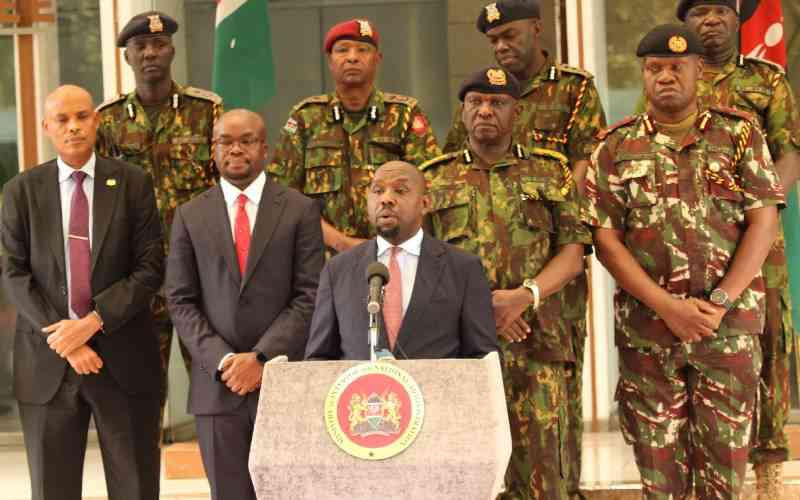NHIA Sanctions 49 Healthcare Facilities and 47 HMOs Over Operational Breaches

The National Health Insurance Authority (NHIA) sanctioned a total of 49 healthcare facilities (HCFs) and 47 health maintenance organisations (HMOs) in 2024. These actions were taken due to documented instances of poor quality of service provided to enrollees, which contravened the Authority's established operational guidelines. The NHIA's enforcement measures followed comprehensive investigations into a significant volume of complaints received from patients who are part of both the state and national health insurance schemes.
Key issues highlighted in the complaints against HCFs included the widespread unavailability of essential medicines, outright denial of services to legitimate enrollees, instances where patients were forced to make out-of-pocket payments for services that were, in fact, covered under their insurance plans, and the non-provision of clear payment narrations. For the HMOs, the prevalent issues revolved around delays or complete denials of referral authorisation codes, considerable delays in the settlement of agreed and reconciled payments to providers, and a concerning refusal to actively monitor and ensure quality assurance within the healthcare facilities they oversee.
These critical findings and subsequent actions are extensively detailed in the 2024 Annual Complaints Report, a publication of the Enforcement Department of the NHIA. This report was produced under the leadership of the Acting Director, Enforcement, Dr. Abdulhamid Habib Abdullahi. The issuance of this report is a direct compliance with the NHIA Act 17 of 2022, which explicitly mandates the NHIA to establish robust mechanisms for both receiving and effectively resolving complaints lodged by members of the health insurance schemes and by healthcare facilities themselves.
During the reporting period, a substantial 3,507 complaints were processed and handled by the NHIA. Out of these, a significant majority of 2,929 complaints, accounting for 84 percent of the total, were successfully resolved. The bulk of these resolved complaints were lodged against HCFs. A more granular breakdown of the complaint distribution reveals that 2,273 reports were specifically directed against HCFs, while 1,232 complaints were against HMOs. Notably, only two reports were recorded where providers lodged complaints against enrollees, indicating a clear pattern of issues predominantly originating from service delivery and management.
Based on the thorough outcome of these investigations, a range of appropriate sanctions were imposed on the erring healthcare providers. Formal warnings were issued to 84 HCFs. Additionally, 54 enrollees received refunds totaling N4,375,500 from 39 HCFs as restitution for overcharges or unrendered services. In more severe cases, four HCFs faced suspension, and six others were completely delisted from the NHIA scheme. For HMOs, 35 received stern warning letters and direct orders to implement immediate corrective actions, while 12 HMOs were mandated to refund N748,200 to 15 affected enrollees.
The report also highlighted the efficiency of the complaint resolution process in 2024. It confirmed that all received complaints were fully investigated and responded to within the established standard response timeframes, which typically range from 10 to 25 days. The average resolution time for complaints that necessitated a full investigation was an impressive 15 days, resulting in a commendable 84 percent complaint resolution rate within the specified timelines. For cases where immediate resolution within the standard timeframe was not possible, a clear explanation was consistently provided to the complainants, with the resolution process continuing until a satisfactory outcome was reached.
Complaints in 2024 were submitted through a variety of accessible routes, ensuring broad reach and ease of reporting. These included in-person submissions, formal written letters, email correspondence, telephone calls, direct engagement with the NHIA call centre, and other designated communication channels. The NHIA's commitment to accountability is further underscored by its Complaint and Grievance Management Protocol, which lays down precise policies and procedures for handling complaints, emphasizing prompt responses and providing clear escalation procedures for particularly complex or serious grievances.
Commenting on these developments, Dr. Kelechi Ohiri, the Director-General of the NHIA, underscored the intrinsic nature of the Authority’s complaints management process within its broader strategy. He described it as a vital, organic component of the NHIA's overarching efforts to significantly enhance accountability across the healthcare sector, diligently rebuild public trust in the health insurance system, and substantially improve the overall quality of care delivered. This comprehensive approach, he noted, is ultimately designed to drive higher enrolment rates by actively encouraging providers to offer current enrollees an elevated standard of service quality.










